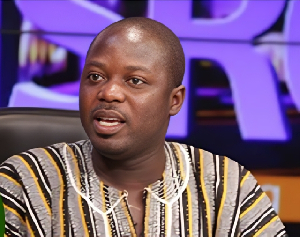We live in challenging times. On the one hand, the second half of the 20th century was characterized by broad scale peace and greater improvements in human livelihood than in any other period of history. On the other hand, however, for many people on the planet, the United Nations goal of peace and prosperity seem as elusive as ever.
For example, it is estimated that around 3 billion people live on less than $2 a day, and 1.3 billion on less than $1 a day. Over 130 million never had the opportunity to go to school and 1.3 billion do not have access to clean drinking water. (United Nations University, (UNU) Study). Sadly, Ghana firmly falls in this category, we are underdeveloped and getting worse. My good old friend, Mr. Obeng-Diawuo Benjamin brought this point home succinctly in his feature article which appeared on this forum in March this year titled : “GHANA: the Burden of Under- development”. It was a wonderfully good piece, well written and a good read. If you missed it please go back to the archives to read it. Now back to my topic.
Many, if not all of these people live in the Third World and for many in these countries, democracy has been touted as a way out of this crisis. The Western nations have been drumming in this message, donor nations and institutions like the World Bank and the International Monetary Fund (IMF) use it as a condition for grants and loans. As a result, the last decade of the 20th century saw an increasing process of democratization in the many parts of the World after the collapse of communism and the Soviet Union. Democracy was hailed as the best form of government and in many parts of Africa, Army Generals traded their military fatigues for suits to contest elections as politicians in an unprecedented era of democracy.
What is democracy? Simply put, it is the right to choose one’s own elected representatives to parliament, and by so doing takes part in the art of governing by making your voice heard on national and international issues through your elected representative. Abraham Lincoln in his famous and often quoted Gettysburg address called it “the government of the people, by the people and for the people”. Modern day democracy is believed to have its roots from the way Greek city states were administered in the fourth and fifth centuries. The Athenian democracy of the fourth century is often cited as the most famous and perhaps the most nearly perfect example of a direct democracy. All adult male residents of the city states met and took part in the deliberations concerning the city’s affairs. They conceived liberty both as the ability to participate in the decision making process and as the right to live without oppression from the state or other citizens.
Modern day democracy is far from being a direct democracy in the way that it was practiced in the Greek city states. Today by and large, we have a representative democracy, a system where once elected, the representatives exercise their own judgement on issues of national interest. The only sanction the people can exercise if they feel their views are being ignored is to vote for another candidate who will operate under the same system, at the next elections. A nearly perfect example of this system operates in the United Kingdom. The supporters of this system maintain that direct democracy as practiced in the Greek City States is impractical given the size and the population of modern states. They further argue that by representative democracy, the public view is refined and enlarged by passing it through a medium of a chosen body of citizens made up of public men and professional politicians, whose wisdom may best discern the true interests of the country and who will be least likely to sacrifice it to temporary or partial considerations.
A number of studies have revealed that representative democracy as it is operated now is alienating many. A recent study undertaken by the Washington Post revealed that many Americans think that the government in Washington has been taken away from them by special interests and that it is no longer responsive to them. More than half of the people surveyed thought the government pursues special interest agenda or its own agenda rather than the public interest and the people’s agenda. And when asked about Lincoln’s formulation that this is government “of, by, and for the people”, 54% of Americans said it no longer applies compared to 39% who said it did apply and 7% who were not sure. The study’s authors concluded “We have an anemic democracy, badly in need of involvement by its citizens”. As is common with studies of this nature, local and state governments enjoy higher confidence ratings than Washington D.C. as people expressed a greater sense of ownership or participation in them. In Britain, the ‘Eurobarometer’ poll of spring 1993 showed voter disillusionment with the present system….. 32% of UK voters are dissatisfied with our “democracy” and 15% not satisfied at all. So far as I know, no such study has been conducted in Ghana to find out the people’s views on democracy and the way our elected governments have been operating under the 1992 constitution. I think it is high time the Center for Democratic Development conducted a similar study to find out the views of the people on our democracy and ways to improve it.
Owing to such misgivings about representative democracy, direct democracy is being promoted as an ideal form of democracy. Direct democracy, not exactly as it was practiced in the Greek city states but with more citizens involvement and control. The proponents of this system identify three main areas which they consider very important for the success of direct democracy: - the initiative, the referendum, and the recall.
The initiative is defined as “a procedure that allows a prescribed number of voters to compel the holding of a binding poll on whether a proposed law of their own choosing should be adopted, or whether a particular law already in force should be repealed”. What seems like an idealistic goal is already working in Austria, Italy, the Swiss Cantons, and 23 US states and the District of Columbia. It is making it possible for citizens voice to be heard and they are acting as a check on legislators.
The legislative referendum “allows a specified number of voters (usually between 3% and 5%) to petition for a referendum concerning a bill that has passed through parliament in the normal way but has not yet taken effect. The effect of a valid petition is that the statute (law) will not come into force until the voters have had the opportunity to approve or reject it in a referendum. If the majority vote against it, the measure is repealed, and the parliament may not introduce a similar measure for a specified period of time. Thirty-nine US states have a version of this system and 24 enable a specified number of voters to require one. The Swiss not only have this but also have the right to vote on ratification of certain international treaties.
The recall is defined as “the power of the people to petition for the holding of an election or the recall, or removal, of a public official” if his performance is below average or is deem incompetent by his constituency. This exists in thirteen US states for state officials.
The first benefit of direct democracy is a further check on a system of checks and balances. Direct democracy is not intended to replace representative assemblies nor has it had any such effect in any country where it has been adopted. Its purpose is to serve as a check on forces that tend to make representative assemblies misrepresentative.
Direct democracy increases the legitimacy of the law. In a democracy, the only possible source of legitimacy is the will of the sovereign people. As the most direct way of ascertaining the will of the people, initiative and referendum have great advantages in this respect.
In summing up, I will say direct democracy is an ideal form of democracy because it does not seek to radically change representative democracy, it does not seek to remove the right of Parliaments to govern, it does not seek to remove the initiative of elected members but it does seek to enhance the accurate representation of governments. It does seek to achieve a better working relationship between voters and the elected representatives. Again, it does seek to improve awareness of matters political within the community and increase the involvement of communities in the decision-making process ensuring greater input of ideas from the community.
Direct democracy does not interfere with the political process. It enables communities to have control over and guide the government back on track if it should deviate too far from the purpose for which it was elected, particularly if that deviation was caused by special interests and non elected power brokers. It also enables the people not to be rendered powerless when great changes are made between elections. The people are allowed an orderly and meaningful way of expressing their concerns in a democracy at relevant times. Three or four years later is often too late to undo what could have easily been prevented. Communities should have the ability to have a greater input into decisions which affect them than they currently do under representative democracies and direct democracy is the answer. In our peculiar circumstances, that will mean starting a constructive national debate on the 1992 constitution with a view to amending the relevant parts to introduce these useful changes.















